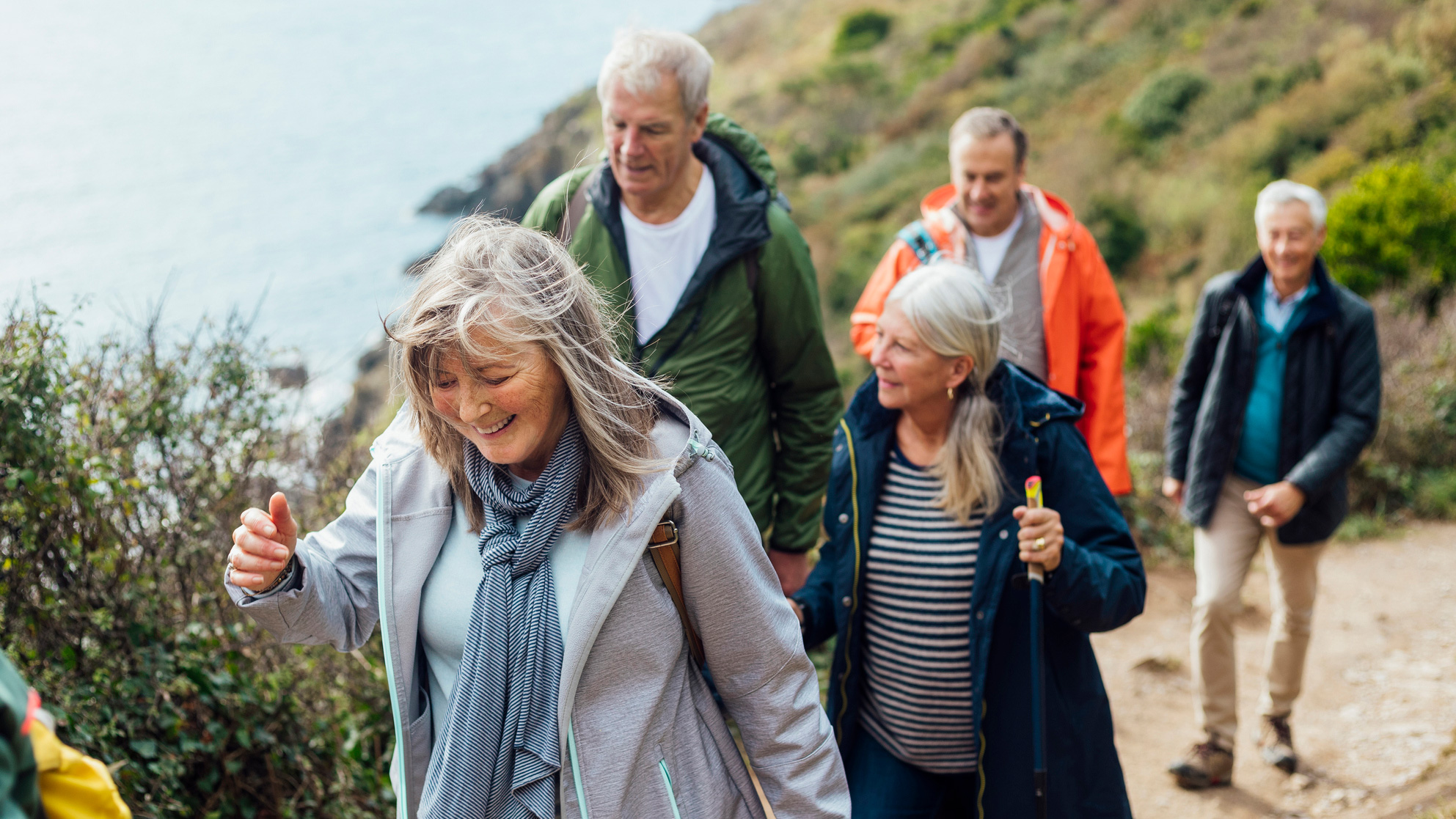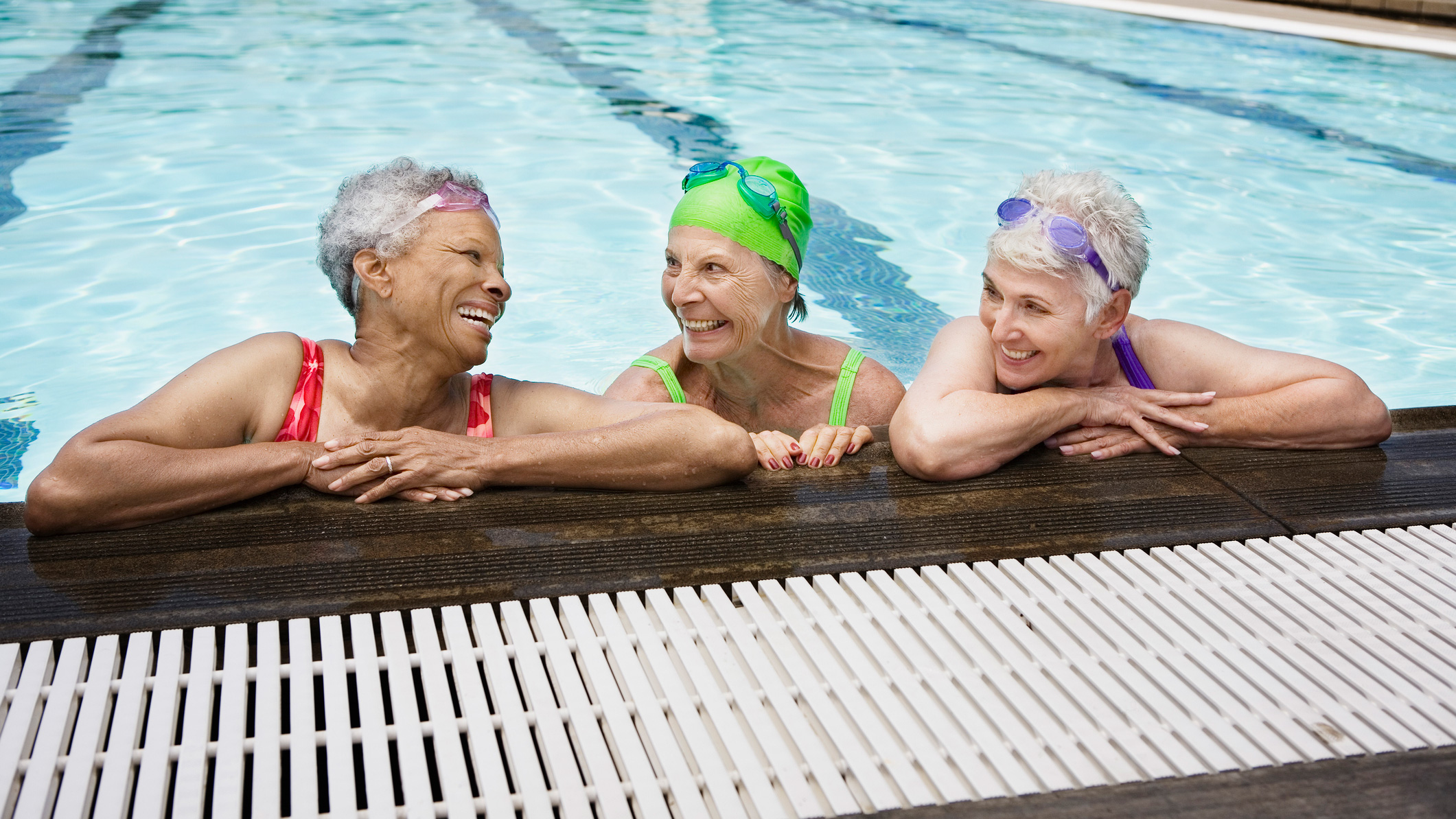An active social life can keep your brain sharp and improve weight loss as you age
Having a group of supportive listeners can develop cognitive resilience and help you with weight loss, says studies


Start your week with achievable workout ideas, health tips and wellbeing advice in your inbox.
You are now subscribed
Your newsletter sign-up was successful
How do you keep your brain healthy? Sudokus and crosswords, or playing Wordle? It turns out rather than adopting these brain training exercises to keep your gray matter at its grayest, we should instead be arranging coffees, lunches, walks and other social activities with our friends.
Having friends and a thriving social life not only keeps our brains sharp, but according to several studies, it could even have a beneficial effect on our waistlines. Sure, the best exercise machines to lose weight are undeniably effective, but you can add to the benefits of your workout by making time for your nearest and dearest.
One study, published in the journal Neurology last year, found the key was a "high availability of supportive listening" according to researchers. If you have some friends or family you can call up who will listen to your problems and offer support, you're likely to have better cognitive function plus improved "cognitive resilience", which is associated with a lower risk of Alzheimer's and other degenerative brain diseases.
The Center for Disease Control & Prevention found one in three US adults aged 45 and over often experience feelings of loneliness. That's a sad, sobering fact, and lack of a supportive listening network could be putting your health at risk in more ways than one.

More research from the journal Frontiers found that loneliness was associated with higher rates of chronic inflammation, which is a predictor of health problems such as cardiovascular disease, cancer, and weight gain. If you find yourself frequently lonely, you're much more likely to overeat, inevitably a leading contributor to obesity, as you get those rushes of our brain's reward chemicals through sugar and fast food rather than human interaction.
There's no easy solution for an epidemic that has swept across one-third of the population. A healthy diet and an exercise regime can be a great start – so we advise you lace up those best shoes for walking – but without tackling the root cause of loneliness, you're likely to slip back into old habits.
Instead, to protect your brain and your waistline, you're going to have to pick up the phone and ask for help. Whether that means reaching out to friends and family, cultivating new relationships by joining classes, or speaking to a helpline or listening service such as the Samaritans, we all do what we can to make connections and use that network of supportive listeners to keep our minds sharp and our waists slimmer.
Start your week with achievable workout ideas, health tips and wellbeing advice in your inbox.
Bonus points if you can use your time with friends to get outside, as just 20 minutes in nature can reduce cortisol levels, lowering feelings of stress and reducing inflammation risks.
Matt Evans is an experienced health and fitness journalist and is currently Fitness and Wellbeing Editor at TechRadar, covering all things exercise and nutrition on Fit&Well's tech-focused sister site. Matt originally discovered exercise through martial arts: he holds a black belt in Karate and remains a keen runner, gym-goer, and infrequent yogi. His top fitness tip? Stretch.
